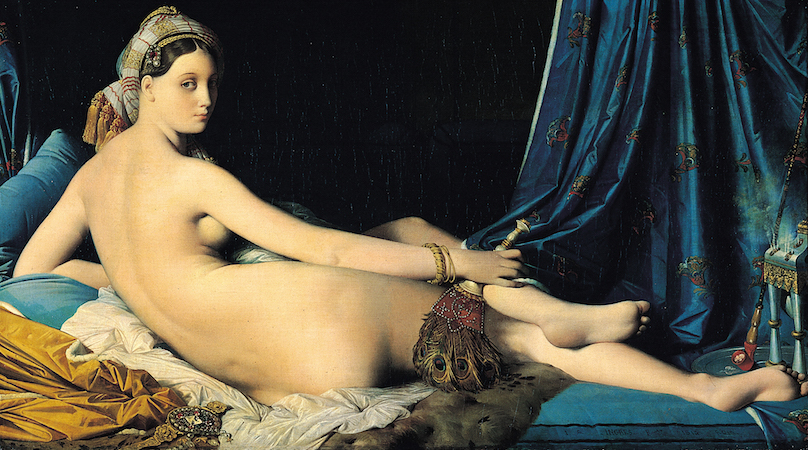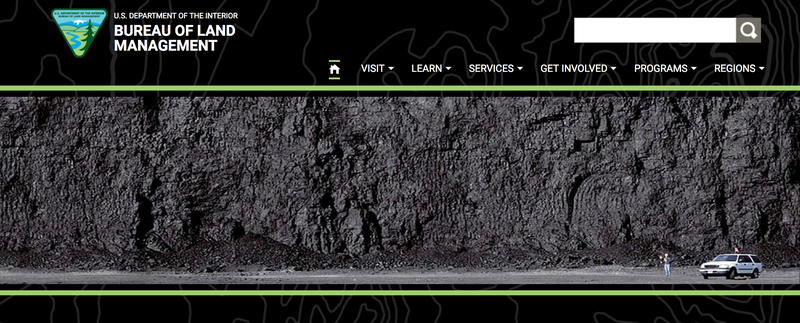The 124 on Orientalism
 Jean-Auguste-Dominique Ingres, The Grand Odalisque, 1814, oil on canvas (Musée du Louvre, Paris)
Jean-Auguste-Dominique Ingres, The Grand Odalisque, 1814, oil on canvas (Musée du Louvre, Paris)
Orientalism. What is it? Once upon a time it could be found on the course bulletin of every major university and it indicated the study of the orient, land typically encompassing north Africa, the Middle East, and East Asia.
Literature professor and founder of post-colonial studies at Colombia, Edward Said (sigh-Eid, not sed) , analyzed this academic tradition and redefined it as the cultural component of imperialism, by which Europeans distinguished themselves, the enlightened Occident, from the near and far east or exotic Orient. He theorized that emphasizing the exotic was effective as justification for the violence and brutality of imperialism.
To this day it remains as a cultural lens through which the West views and defines the East disallowing the East from representing itself. Interesting to me is how amorphous the depiction is. There is little consistency to the orientalist representation, which once upon a time was a picture of lavish overindulgence and unabated sensual appetites. Hardly recognizable next to the today’s representation of rigid reactionaries who value piety and punish pleasure.
If the concept of Orientalism is new to you, I would encourage you to keep it in mind the next time you see Muslims depicted in movies, television or the news. Are you seeing common people you can relate to or something more exotic or fanatical?
That’s my two cents and you should take it for exactly what’s it’s worth. Here are a couple videos to elaborate:
“Edward Said – Framed: The Politics of Stereotypes in News” — Al Jazeera English
“What is Orientalism” — Quran Speaks
Exploring Prejudice
Stereotypes are often reinforced by the process of confirmation bias, the demonstrated human propensity to favor information that confirms our beliefs over contradictions to them. A relevant example: if you believe that Muslims are typically pious reactionaries, then the image of Abu Bakr al-Baghdadi may be easier to recall than Safiyya Ally and Shabir Ally, even if you’ve been exposed to both. I think it illustrates it okay, but for more:
“Confirmation Bias”, David McRaney, You Are Not So Smart
The Misconception: Your opinions are the result of years of rational, objective analysis.
The Truth: Your opinions are the result of years of paying attention to information which confirmed what you believed while ignoring information which challenged your preconceived notions.
For the reading list
“Orientalism”, Edward Said ($9.50 used from Powell’s)
I first encountered “Orientalism” 8 years ago when I was studying Arabic in Morocco and we translated sections of the text from English into Arabic. Since then I’ve thumb through it a few times and have each time been impressed by Said’s profundity. After years of periodic grazing, I’ve finally purchased my own copy and will be reading it cover-to-cover very soon.
In the introduction, Said quotes from Italian marxist Antonio Gramsci’s “Prison Notebooks”, giving me one of my all time favorite quotes:
“The starting-point of critical elaboration is the consciousness of what one really is, and is ‘knowing thyself’ as a product of the historical processes to date, which has deposited in you an infinity of traces, without leaving an inventory. Therefore it is imperative at the outset to compile such an inventory.“
Antonio Gramsci, “Prison Notebooks”
“Native Believer”, Ali Eteraz
By happenstance I came across Ali Eteraz’s novel “Native Believer” on KPFA’s “Against the Grain” podcast. It’s about a secular Muslim living in the United States. Here’s the NYT Books review:
Weekly Roundup
“When Marx Meets Islam”, Ma Tianjie, Foreign Policy
Almost every Chinese person with even a middle school education must, at some point, run into the famous statement about religion by Karl Marx: “Religion is the opiate of the masses.” It is enshrined in textbooks that introduce students to the philosopher’s materialistic interpretation of the world, which considers religion as a “fantasy” used by reactionary forces to disarm the revolutionary proletariat by promising salvation in the afterlife while preaching endurance in the current one.
“Top Democrats Are Wrong: Trump Supporters Were More Motivated By Racism Than Economic Issues”, Mehdi Hasan, The Intercept
IT ISN’T ONLY Republicans, it seems, who traffic in alternative facts. Since Donald Trump’s shock election victory, leading Democrats have worked hard to convince themselves, and the rest of us, that his triumph had less to do with racism and much more to do with economic anxiety — despite almost all of the available evidence suggesting otherwise.
War and Peace
“The Spoils of War: Trump Lavished With Media and Bipartisan Praise for Bombing Syria”, Glenn Greenwald, The Intercept
In every type of government, nothing unites people behind the leader more quickly, reflexively or reliably than war. Donald Trump now sees how true that is, as the same establishment leaders in U.S. politics and media who have spent months denouncing him as a mentally unstable and inept authoritarian and unprecedented threat to democracy are standing and applauding him as he launches bombs at Syrian government targets.
Climate Change and The Environment
“BLM Replaces Mountain Landscape Photo with Coal Seam on Home Page”, Kirk Siegler, NPR
On the top of its home page, the Bureau of Land Management, which manages more than 200 million acres of public land under the U.S. Department of the Interior, swapped out a photo of a young boy and his companion backpacking across a mountain meadow in favor of one showing a massive coal seam at a mine in Wyoming.


Public Health
“Trump’s EPA moves to dismantle programs that protect kids from lead paint”, Chris Mooney and Juliet Eilperin, The Washington Post
Environmental Protection Agency officials are proposing to eliminate two programs focused on limiting children’s exposure to lead-based paint, which is known to cause damage to developing brains and nervous systems.
Poverty and Class
“Don’t Blame the Boomers”, Matt Bruenig, Jacobin
I was inspired by this piece in the Boston Globe, about how baby boomers have ruined everything, to go into the Survey of Consumer Finances and see just how well the boomers are actually doing, at least as far as wealth goes. The answer, as with all things, is it depends on what class of boomer you are talking about. Rich boomers are doing well. Poor boomers are not.
“At U-Va., a ‘watch list’ flags VIP applicants for special handling”, T. Rees Shapiro, The Washington Post
The University of Virginia’s fundraising team for years has sought to help children of wealthy alumni and prominent donors who apply for admission, flagging their cases internally for special handling, according to documents obtained by The Washington Post.
American Oligarchs
“Blackwater founder held secret Seychelles meeting to establish Trump-Putin back channel”, Adam Entous, Greg Miller, Kevin Sieff, and Karen DeYoung, The Washington Post
The United Arab Emirates arranged a secret meeting in January between Blackwater founder Erik Prince and a Russian close to President Vladimir Putin as part of an apparent effort to establish a back-channel line of communication between Moscow and President-elect Donald Trump, according to U.S., European and Arab officials.
“Notorious Mercenary Erik Prince is Advising Trump from the Shadows” Jeremy Scahill, The Intercept
Erik Prince, America’s most notorious mercenary, is lurking in the shadows of the incoming Trump administration. A former senior U.S. official who has advised the Trump transition told The Intercept that Prince has been advising the team on matters related to intelligence and defense, including weighing in on candidates for the Defense and State departments. The official asked not to be identified because of a transition policy prohibiting discussion of confidential deliberations.
State Violence and The Carceral State
“Police Arrested This Cop Watch Activist — But Recorded Themselves By Accident”, George Joseph, The Nation
Last August, Jose LaSalle, a prominent New York City Cop Watch activist, was arrested after filming a stop-and-frisk near a housing project in the South Bronx. Though filming the police is legal, LaSalle was charged with “obstructing governmental administration.” LaSalle claims he was standing far away from the incident. To continue documenting his own arrest, the veteran activist left his two phones and a GoPro camera turned on and recording as he was being taken to a nearby police station.
“Video released of police killing Utah man, firing at him with his own gun”, Sam Levin, The Guardian
Utah police officers fatally shot a man after disarming him and then firing at him with his own gun, according to law enforcement officials and body-camera footage that captured more than a dozen bullets fired.
Unknown Minstrel — Week 5
By Daniel Suhre
Will be back next week. Promise!
In the meantime, check out….
“Goodbye, Oh Goodbye”, Andrew Jackson Jihad
Your Essay or Whatever-you-want-really Here
I’m encouraging you to start a news blog and then to share a little something that I can post right here. It’d be an exchange and I’ll send something to you too. This is a good idea. This is a fun idea.
al-Baqia
Fifty years ago Dr. Martin Luther King, Jr. gave his speech “Beyond Vietnam — A Time to Break Silence” much to the distress of his friends, allies, and political patrons. Criticizing Vietnam was a bridge too far for the American establishment and the next morning Dr. King was condemned by the press, the president, many Democrats, and much of white America. By his assassination a year later, he was penniless and unpopular. The last Gallup poll before his death showed him as having 32% positive and 63% negative approval rating.
The last couple years of Martin Luther King, Jr.’s life are largely overlooked; his legacy whitewashed in what Dr. Cornell West has called the “Santa Claus-ification”.
“Beyond Vietnam — A time to Break Silence”, Martin Luther King, Jr., April 4, 1967
“I knew that I could never again raise my voice against the violence of the oppressed in the ghettos without having first spoken clearly to the greatest purveyor of violence in the world today — my own government. For the sake of those boys, for the sake of this government, for the sake of the hundreds of thousands trembling under our violence, I cannot be silent.”
thank you for scrolling
confirmation bias is a struggle i fight every damn day!
LikeLiked by 1 person
Meeeeee to!
LikeLiked by 1 person